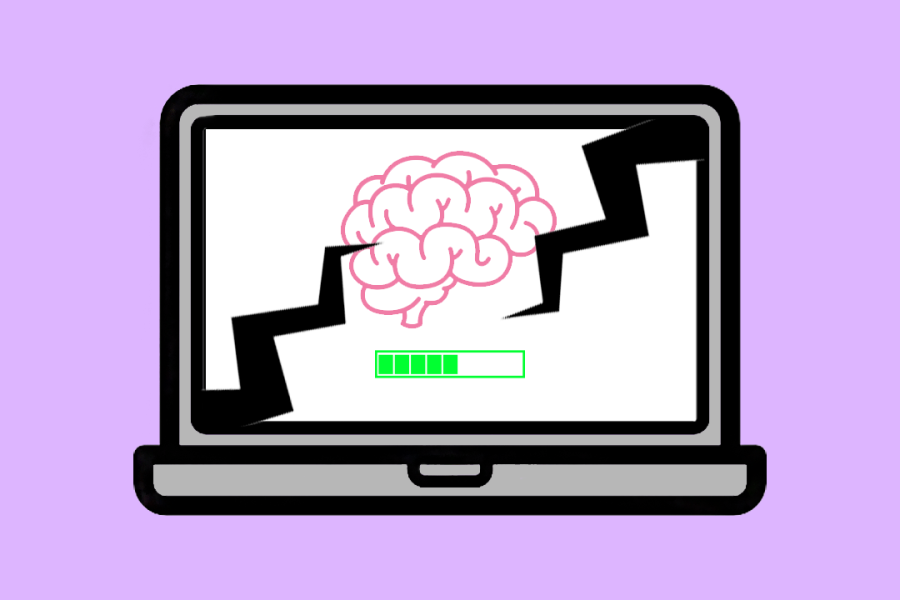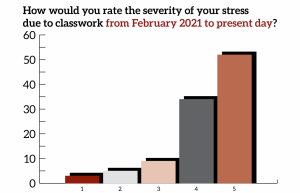Mental Health: The Newest Online Commodity
A stranger with an internet connection is not a valid replacement for reliable access to a qualified clinician
March 3, 2023
If you sat waiting in a doctor’s office only to be given a diagnosis without examination, what feelings (or four-letter words) might that evoke? No need for a blood test or medical history; they immediately know what’s wrong. You can go pick up your prescription at your nearest Walgreens. Almost all of us would conclude, rather quickly, that we would not be rushing to the corner of happy and healthy.
With that in mind, why would we accept such blind, confident assessments of mental health conditions on social media without the accreditation of an advanced degree?
Within the addictive labyrinths of content on platforms, such as Instagram and TikTok, online misinformation about the realities of mental health present the greatest threat to both public understanding and personal recovery in the modern day. The seemingly omniscient social media algorithms are famous, maybe even infamous, for populating your timeline with videos you simply need to see.
No, “needing structure but also craving impulsivity” is not a sign of ADHD, but rather a symptom of being a human being with an active brain.
Titles like “Signs You Could be Autistic” and “Hidden Symptoms of Repressed Trauma” spark new doubts in the minds of viewers: “Wait … those sound like me. Am I actually autistic? What if I have repressed trauma and I just can’t remember it? I thought this was normal … but I guess it isn’t?”
The winning combination of an authoritative tone and some buzzwords like “detachment” and “subconscious,” and suddenly you’ve got a spiral of doubt shaping up for a 3 a.m. arrival. Lurking in many of these videos are universal experiences shoved into pathologized language.
No, “needing structure but also craving impulsivity” is not a sign of ADHD, but rather a symptom of being a human being with an active brain. I can’t remember who my friends were in the first grade because it was over a decade ago, not because of secret trauma.
With apps like BetterMe selling plans to heal your childhood trauma in “just 28 days,” we see the consequences of misinformation reflected in pitches for a quick fix — psychological snake oil.
In an often well-intentioned attempt to expand awareness of unique clinical presentations, these videos manage to generalize symptoms to the extent that it is indistinguishable from common human experiences. We are bundles of organs and nerves held together in sacks of flesh. It’s a flawed and at times irritating process; imperfections should not require a clinical category to be worthy of acknowledgement and empathy.
With content creation as an increasingly popular source of personal income, the ease of selling alleged solutions for mental health issues is troubling beyond words. With apps like BetterMe selling plans to heal your childhood trauma in “just 28 days,” we see the consequences of misinformation reflected in pitches for a quick fix — psychological snake oil. Without anyone to report harm to, except perhaps a cursory customer service number that will ring indefinitely or an email that is never checked, the anonymity of online forums allows individuals to skirt the responsibility of being identified and held accountable for harmful advice or an incorrect diagnosis.
Accreditation requires some degree of authenticity, involving intimate details like your real name. Without it, @User-followed-by-a-string-of-numbers can continue to promise the psychological equivalent of what Ozempic is to the Kardashians. Twenty-eight days, BetterMe says. On the 29th, the uninformed will ask what is taking so long, and those seeking help will wonder why they haven’t managed to overcome adversity within one calendar month.
However, like ditching Windex for maple syrup, replacing professional clinical assessment with advice from someone who “can read vibes” is bound to land us in a stickier situation than where we started.
To promise reliability, progress and recovery to those searching for meaning without the intent to follow through is irresponsible. Though a crime made faceless in the digital space, offering immediate relief to those convinced it is beyond reach dangles hope in front of one’s face only to yank it away when the in-app purchase goes through.
It’s important to note that discouraging brazen strangers with smartphones from handing out diagnosis and treatment plans like Tic Tacs is not akin to saying that the current mental health care system is flawless or even effective. Those that caution against social media as a primary source of psychoeducation must also address the systemic racism, sexism and classism that inhibit the current path to formal treatment.
However, like ditching Windex for maple syrup, replacing professional clinical assessment with advice from someone who “can read vibes” is bound to land us in a stickier situation than where we started. Being an “empath” is not the same as years of graduate school and subsequent clinical training.
So while a sufficient solution to address the underlying issue of inaccessible mental health care has yet to be determined, consumption of aforementioned “Signs You Have (Insert Diagnosis Here)” content just isn’t how we’ll find it. A necessary first step is to consider why this misinformation is so voraciously consumed.
Until we can ensure access to mental health resources at all levels of support for those who need it, Becky in Idaho will still be offering fake Instagram therapy from behind the register at 7-Eleven.















